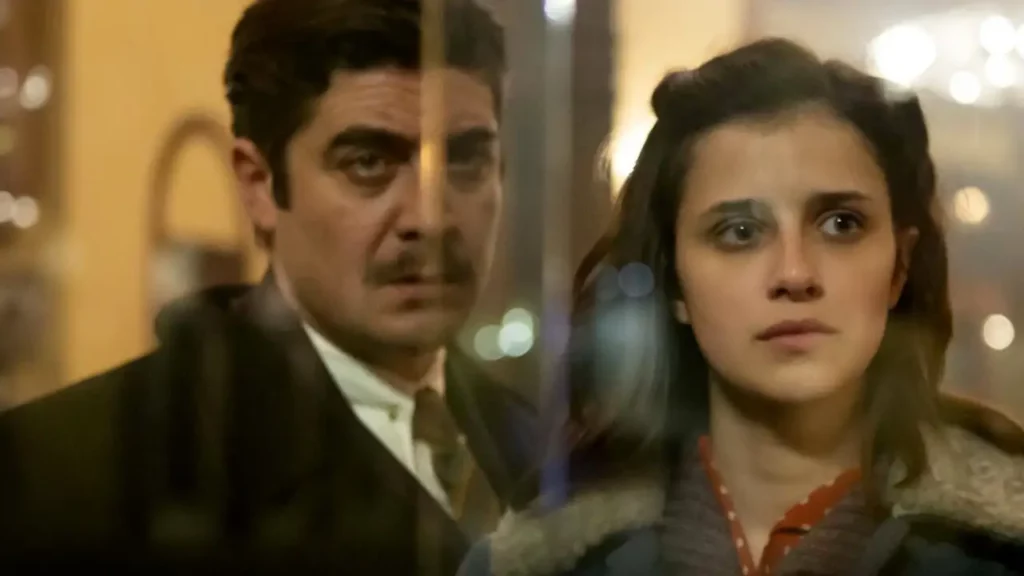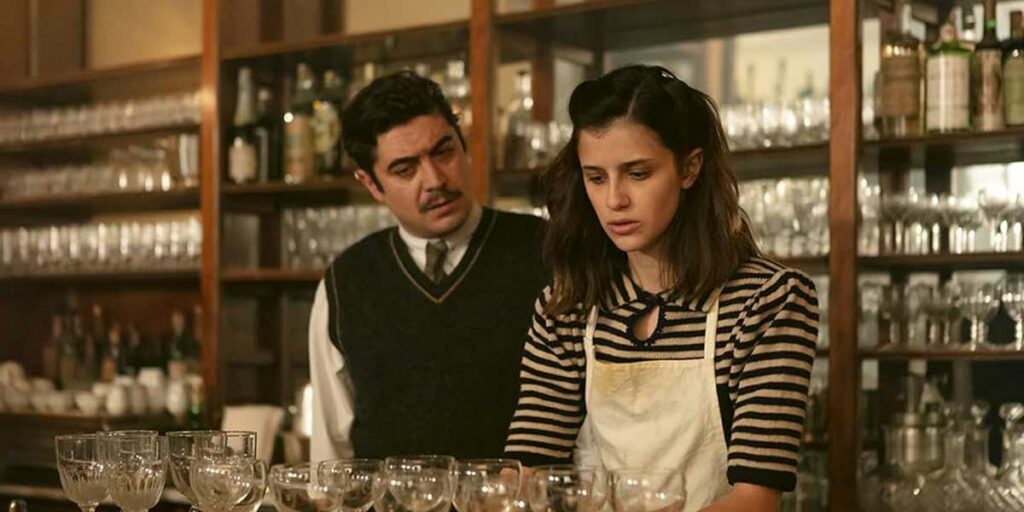The Shadow of the Day, Giuseppe Piccioni’s romantic character drama, is entertaining and simplistic in its intimacy, but it never gets quite as tense as its premise may suggest.
Giuseppe Piccioni’s The Shadow of the Day (L’Ombra del Giorno) is a character drama set against the tense backdrop of pre-WWII Italy, seeking to explore the dichotomy between societal expectation and personal belief. It’s a film that takes place in a complex period of history, but chooses to keep its narrative relatively simple and focused on its central couple. It’s moving and engaging, but doesn’t ever get as tense, exciting or as pointed as one might expect it to.
In picturesque Ascoli Piceno, 1938, there is a rising tension in the air as Mussolini’s fascism encroaches on everyday society. Luciano (Riccardo Scamarcio), a wounded World War One veteran, is content to observe it through the windows of his restaurant, abiding by his own rules and expecting his small staff to do the same. But after Anna (Benedetta Porcaroli), a beautiful young woman with a dangerous secret, begs for a job and their connection blossoms into something romantic, he soon finds himself in an impossible situation as his personal and professional lives clash with his country’s politics.
Despite a nail-biting central premise, The Shadow of the Day doesn’t stray far from the confines of a romantic drama. Its tension and excitement never quite reach the heights it feels like they could, but the film isn’t necessarily going for the heart-in-mouth type stuff reminiscent of Inglourious Basterds’ opening sequence. It is an overall much more intimate affair, focusing almost entirely on Luciano and Anna, with the other staff of the restaurant padding things out a bit. It gives the film a delicacy, perhaps even a simplicity, as it centres itself around the connection between two individuals rather than a more broader, social commentary.

And as a love story, The Shadow of the Day is quite gentle. It’s about two people with a strong connection hindered by circumstances not conducive to a relationship, not least a turbulent socio-political backdrop that would pit them against each other. Anna and Luciano are drawn together almost immediately, but her Jewishness and his ‘role’ as a sympathetic former soldier complicate things somewhat. Their love story is intense, powerful and affecting, but does border on being a little bit rushed.
And that’s reminiscent of the film itself. Poignant and engaging, certainly, but one can’t help but consistently feel like the film is missing something, some more grit or tension or action. Instead, Piccioni’s film involves a lot of people waiting on tables, staring through windows or huddling in cramped kitchens making soup and washing glasses.
As such, it is calm and languid in its pacing, which may grate, but never dragging to the point of it being to the film’s detriment. The performances across the board are good, despite the reserved nature of the characters making everything slightly subdued. And the restaurant itself never feels stifling or claustrophobic, even if it might have been meant to. The whole film feels like a world removed from its own reality, with the shifting political situation outside represented by strange performance interludes, dwindling patrons and increasingly aggressive identity checks.
The Shadow of The Day works well enough on its own as a romantic character piece, but suffers somewhat from underutilised tension potential. It’s a film that is both poignant and pertinent, in that it reminds audiences of the importance of compassion in the face of injustices, and adeptly avoids clichés and the trappings of melodrama.
The Shadow of The Day will be screened at the UK Jewish Film Festival from November 9, 2023.

